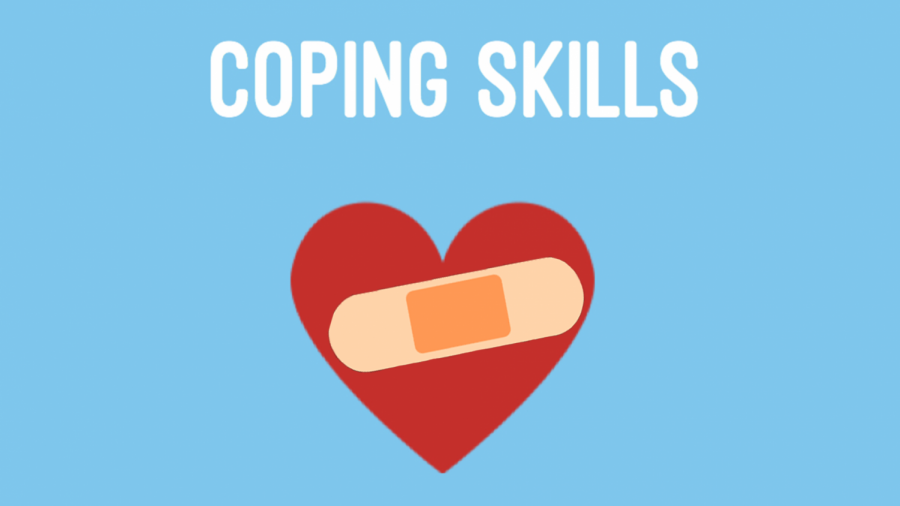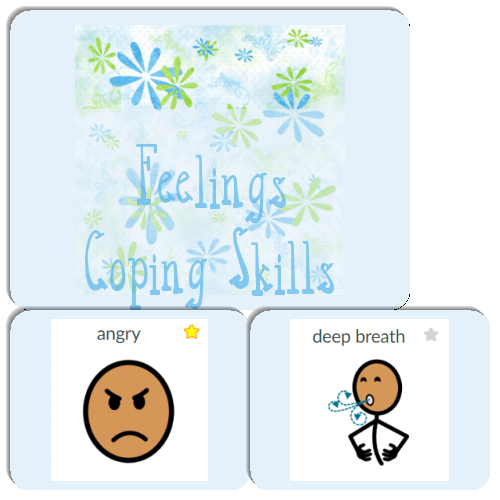Life is full of challenges, and coping skills play a crucial role in navigating these difficulties effectively. Whether you're dealing with stress, anxiety, or major life changes, understanding coping skills can make a significant difference in your mental and emotional well-being. This article delves into the topic of coping skills, exploring what they are, why they matter, and how you can develop them to improve your quality of life.
In today's fast-paced world, the ability to cope with adversity is more important than ever. Coping skills help individuals manage stress, regulate emotions, and maintain resilience during tough times. By learning effective coping strategies, you can transform challenges into opportunities for growth and self-improvement.
This article will provide you with a detailed overview of coping skills, including definitions, types, and practical tips for implementation. Whether you're a student, professional, or simply someone looking to enhance your emotional resilience, this guide is designed to equip you with the knowledge and tools you need to thrive.
Table of Contents
- What Are Coping Skills?
- Types of Coping Skills
- Importance of Coping Skills
- Benefits of Developing Coping Skills
- Strategies for Building Coping Skills
- Common Myths About Coping Skills
- Coping Skills for Specific Challenges
- How to Identify Effective Coping Skills
- Tips for Practicing Coping Skills
- Conclusion
What Are Coping Skills?
Coping skills refer to the strategies and techniques individuals use to manage stress, adversity, and difficult emotions. These skills are essential for maintaining mental health and emotional well-being. Coping skills can be categorized into various types, including problem-focused, emotion-focused, and meaning-focused coping.
Problem-focused coping involves addressing the source of stress directly, such as by solving a problem or making a plan. Emotion-focused coping, on the other hand, centers on regulating emotions and reducing distress. Meaning-focused coping helps individuals find purpose and meaning in challenging situations.
Understanding which of these is true about coping skills requires recognizing that they are not one-size-fits-all solutions. What works for one person may not work for another, and it's important to explore different strategies to find what suits you best.
Types of Coping Skills
Problem-Focused Coping
Problem-focused coping is ideal for situations where the source of stress can be directly addressed. Examples include:
- Creating a to-do list
- Seeking advice or support
- Breaking tasks into smaller steps
Emotion-Focused Coping
Emotion-focused coping is beneficial when the stressor cannot be immediately resolved. Techniques include:
- Mindfulness meditation
- Deep breathing exercises
- Journaling emotions
Meaning-Focused Coping
Meaning-focused coping helps individuals derive purpose from challenging experiences. Strategies include:
- Practicing gratitude
- Reflecting on personal values
- Engaging in acts of kindness
Importance of Coping Skills
Coping skills are vital for managing life's challenges and maintaining mental health. Without effective coping mechanisms, individuals may experience increased stress, anxiety, and even depression. Coping skills empower people to handle difficulties constructively, reducing the negative impact of stress on their well-being.
Research shows that individuals with strong coping skills tend to have better mental health outcomes. According to the American Psychological Association (APA), developing coping skills can lead to improved emotional regulation, enhanced resilience, and greater life satisfaction.
Benefits of Developing Coping Skills
Developing coping skills offers numerous benefits, including:
- Improved emotional regulation
- Increased resilience to stress
- Better problem-solving abilities
- Enhanced interpersonal relationships
- Greater overall well-being
By investing time and effort into building coping skills, individuals can create a stronger foundation for mental and emotional health. This not only helps in overcoming current challenges but also prepares them for future adversities.
Strategies for Building Coping Skills
Identify Your Stressors
The first step in building coping skills is identifying the sources of stress in your life. Keep a journal to track situations that trigger stress and note how you respond to them.
Practice Mindfulness
Mindfulness involves being present in the moment without judgment. Regular mindfulness practice can improve emotional regulation and reduce stress levels.
Seek Support
Don't hesitate to reach out to friends, family, or mental health professionals for support. Talking about your feelings can provide relief and offer new perspectives on coping strategies.
Common Myths About Coping Skills
There are several misconceptions about coping skills that can hinder their development. Some common myths include:
- Coping skills are only for people with mental health issues
- Effective coping means avoiding difficult emotions
- Coping skills are innate and cannot be learned
It's important to dispel these myths and recognize that coping skills are beneficial for everyone and can be developed through practice and persistence.
Coping Skills for Specific Challenges
Stress at Work
For work-related stress, consider implementing time management techniques, setting boundaries, and prioritizing self-care. Regular exercise and mindfulness practices can also help reduce workplace stress.
Anxiety and Depression
Individuals dealing with anxiety and depression may benefit from cognitive-behavioral techniques, such as reframing negative thoughts and practicing relaxation exercises. Professional therapy can also provide valuable support.
Grief and Loss
Coping with grief requires patience and compassion. Engaging in activities that honor the memory of a loved one, connecting with support groups, and allowing yourself to grieve are essential components of the healing process.
How to Identify Effective Coping Skills
Identifying effective coping skills involves assessing their impact on your well-being. Ask yourself:
- Do these strategies reduce my stress levels?
- Do they promote positive emotions and resilience?
- Are they sustainable and realistic for my lifestyle?
It's important to experiment with different coping techniques and evaluate their effectiveness over time. What works in one situation may not work in another, so flexibility is key.
Tips for Practicing Coping Skills
Practicing coping skills consistently is essential for their effectiveness. Here are some tips to help you integrate them into your daily life:
- Set aside dedicated time for practice
- Start small and gradually increase complexity
- Track your progress and celebrate successes
- Stay open to feedback and adapt as needed
Conclusion
In conclusion, coping skills are essential tools for managing life's challenges and maintaining mental health. By understanding which of these is true about coping skills and implementing effective strategies, you can enhance your resilience and well-being. Remember that coping skills are not one-size-fits-all solutions and may require experimentation to find what works best for you.
We encourage you to take action by exploring the coping techniques discussed in this article and sharing your experiences with others. Your journey to improved mental health starts today. For more insights and resources, explore our other articles and stay connected with our community.


